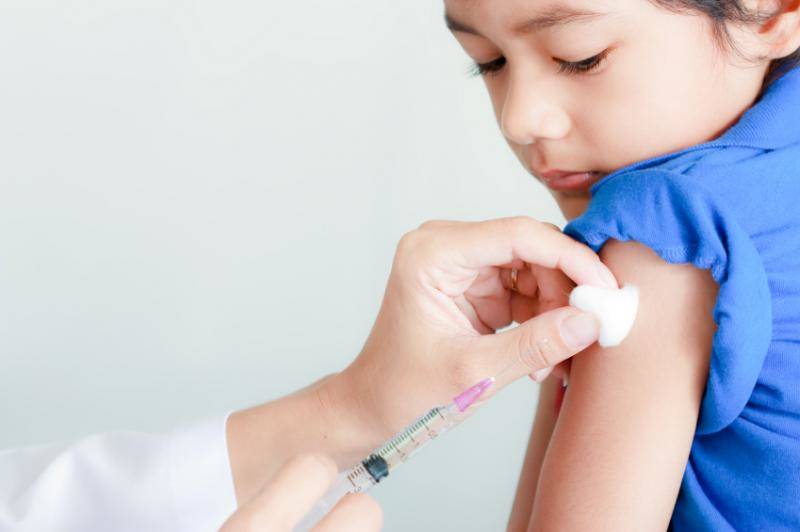
All you need to know about your baby’s Immunization
28 Dec 2015 | 5 min Read
Prachi Arora
Author | 28 Articles
As a parent, we want lifelong protection for our kids and “Immunization” is the very first step towards it. Read on for some must-know information about vaccines as advised by a recommended pediatrician, Dr Mayank Rawat.
What is a Vaccine?
A vaccine is a preparation, which when introduced in the body, stimulates and trains the immune system to recognize and combat specific infections.
What is Immunization and why is it important?
Immunization means putting a vaccine into a baby’s body so that her body can learn how to fight an infection. That way, baby will be protected against that infection, even if someone around her has the germs for that infection. Hence, it’s very important to get the kids immunized timely. Immunizations are usually given as an injection or sometimes as an oral drop.
Is it ok to give it 7-10 days before or after the scheduled date?
We must not give vaccines before the suggested date; however, we may choose to give it on that date or after that date (as soon as possible).
Any minimum gap is required between 2 vaccines?
Such restrictions are applicable only for injectable live viral vaccines like MMR, Chickenpox, Live Hepatitis A. These vaccines are preferred to be injected on the same day but in case they are not injected together, then, at least, a month’s gap is suggested.
Here is an Immunization Calendar that needs to be referred at the time of the vaccination. Here, it is, as recommended by the Indian Academy of Pediatrics (IAP), which must be followed for children in India.
| Age | Vaccines | Prevents |
| Birth | BCG OPV 0 Hep-B 1 | TB (tuberculosis) Polio Hepatitis B Virus (Liver Damage) |
| 6 Weeks | DT wP 1 IPV 1 Help-B 2 Hib 1 Rotavirus 1 PCV 1 | Diphtheria/Tetanus/Pertussis Polio Hepatitis B Virus (Liver Damage) Epiglottitis, Pneumonia, Meningitis Severe diarrhea Pneumococcal disease |
| 10 Weeks | DT wP 2 IPV 2 Rotavirus 2 PCV 2 | Diphtheria/Tetanus/Pertussis Polio Severe diarrhea Pneumoccoccal disease |
| 14 Weeks | DT wP 3 IPV 3 Hib 3 Rotavirus 3 PCV 3 | Diphtheria/Tetanus/Pertussis Polio Epiglottitis, Pneumonia, Meningitis Severe diarrhea Pneumococcal disease |
| 6 Months | OPV 1 Hep-B 3 | Polio Hepatitis B Virus (Liver Damage) |
| 9 Months | OPV 2 MMR-1 | Polio Measles |
| 9-12 Months | Typhoid Conjugate Vaccine | Typhoid |
| 12 Months | Hep-A 1 | Hepatitis A |
| 15 Months | MMR 2 Varicella 1 PCV booster | Measles Chicken pox or zoster virus Pneumococcal disease |
| 16 to 18 Months | DT wP B1 IPV B1 Hib B 1 | Diphtheria/Tetanus/Pertussis Polio Epiglottitis, Pnenumonia, Meningitis |
| 18 months – 2 years | Hep-A 2 | Hepatitis A |
| 4 to 6 Years | DT wP B2 OPV 3 Typhoid Conjugate Vaccine Booster | Diphtheria/Tetanus/Pertussis Polio Typhoid |
| 10 to 12 Years | Tdap/Td HPV | Diphtheria/Tetanus/Pertussis Human papillomavirus or cancer |
What’s the difference between painless and usual vaccines? How to decide which one to opt for and what are the side effects?
This distinction is made only in DPT vaccines; any other vaccine does not have this categorisation.
DPT Vaccine Categorisation:
Initially, there was a DPwT vaccine, which had reactogenicity like pain, swelling, fever. Later, a modified DPaT vaccine was developed which had much lesser reactogenicity.
Recent data however, suggests that regular DPwT provides more protection as compared to the painless DPaT vaccine. Therefore, Indian Academy of Pediatrics has recommended regular DPwT vaccine over the painless DPaT vaccine.
DPwT vaccine has few side-effects which you may see after a vaccination:
1. Fever: usually mild in most of the vaccines
2. Redness, pain or swelling at the site of the injection
3. Vomiting or dizziness
4. Diarrhoea
If a vaccine has a significant side-effect, then your doctor will tell you in advance. Otherwise, if a child has an allergic reaction towards any vaccination, then it generally shows up within 15-20 mins after the shot.
Can we delay a vaccination, if the baby is sick with the flu?
If a baby is having a fever over 101 degrees or she is really uneasy due to a health issue, then it’s always better to do it on another day. Otherwise, delaying a vaccination due to a mild flu is not recommended or, necessary.
Tips to follow before or after the shots:
Before the shot:
1. You need to be confident and calm
2. Give the baby a cleansing bath and do not apply any oil, cream or lotion
3. Try to soothe the baby with his/her favourite toy
4. Always tell the baby that it will hurt a little like an ant bite, but it will make him stronger
During the shot:
1. Try to distract the baby or talk to him.
2. Hold the baby tight.
After the shot:
1. Wait for 15 mins to see any side-effect.
2. Use ice packs to relieve the pain.
3. Acknowledge the baby, but behave as if nothing major has happened.
How important is it to check for the brands of the vaccines?
There is no significant difference between the different brands of a given vaccine. Hence, your doctor would advise you his preferred and tested vaccine as per his personal experience. You can always ask your doctor for the vaccine’s brand name, batch no. and expiry date.
A


Suggestions offered by doctors on BabyChakra are of advisory nature i.e., for educational and informational purposes only. Content posted on, created for, or compiled by BabyChakra is not intended or designed to replace your doctor's independent judgment about any symptom, condition, or the appropriateness or risks of a procedure or treatment for a given person.
